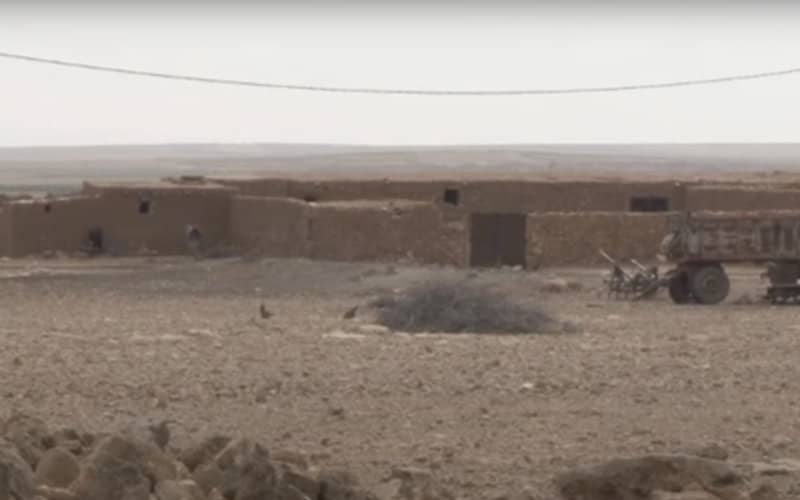Severe Drought Drives Moroccan Farmers to Abandon Rural Villages for Cities

In Azbane Lagrinate, a village located 47 kilometers north of Marrakech, drought is pushing farmers to move to the cities. The kingdom is experiencing one of the worst droughts of the last 30 years, leaving Moroccan farmers with virtually no other alternative.
The climate change that has caused the scarcity of rains in Morocco is causing a lot of damage in the fields. Speaking to Africanews, a farmer specializing in alfalfa cultivation says he has experienced drought in Morocco, but not with this intensity. He assures that he has not seen a single drop of rain since the beginning of the year, while in the region, agriculture is their only source of income.
"We have always worked solely in agriculture and we would always like to continue this work, we would always like to stay here, but if the lack of rain continues, we will have to leave. It will be very difficult for us to make this decision. We are really sad when we see our land suffering from drought in addition to the lack of water, but then there is no other option but to emigrate," said Rachid, another farmer in Douar Azbane Lagrinate.
He who was proud of the expanse of green plants in his field, now has only a small green patch surrounded by dry earth and stones. He digs new wells and uses irrigation stations, but it is despair. Even at 130 meters deep, the water is not available in sufficient quantity, he complains.
"Climate change has caused a lack of rain, which has led to the drying up of the land. The lack of rain has also impacted the wells. The livestock have little to drink and graze," explained Abdessadeq, a sheep farmer in Douar Azbane Lagrinate.
Powerless, the town hall of Nzalet Laadem sees more and more inhabitants leaving the village because of the drought. "The phenomenon of rural exodus is a direct consequence of the drought that has affected the region, which has become a structural phenomenon due to successive years of drought, despite the considerable efforts made by the State to stabilize the population through the provision of drinking water, electricity and agricultural support programs, such as crop insurance during drought periods," said Abdelilah Mehdi, head of services at the town hall of Nzalet Laadem.
The World Bank’s Groundswell report stressed that if nothing is done, 5.4% of Morocco’s total population, or about 1.9 million people, will leave rural areas for cities.
Related Articles
-

Morocco’s New License Plates Spark Nationwide Controversy: Drivers Fined for Legal Tags
8 September 2025
-

Severe Weather Alert: Thunderstorms and Gusty Winds to Batter Multiple Moroccan Regions
8 September 2025
-

Ryanair Flight Fiasco: Passengers Stranded in Rabat as Plane Lands in Fez Without Them
8 September 2025
-

Drought Threatens Morocco’s Ancient Argan Forests, Risking Ecological Disaster
8 September 2025
-

Woman Arrested for Fabricating Brutal Kidnapping to Cover Up Affair
7 September 2025